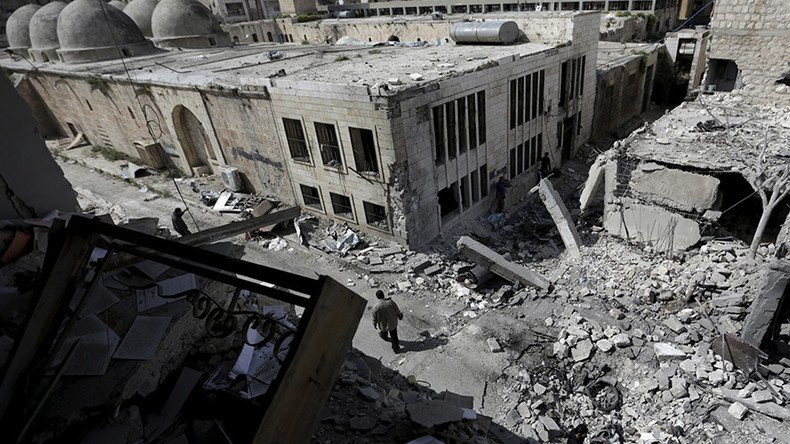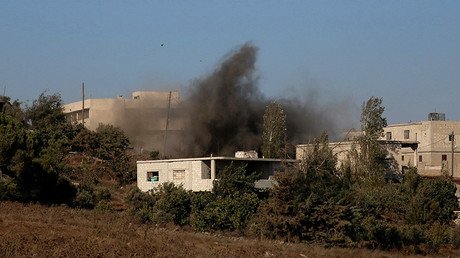US & US-controlled forces haven't fulfilled any Syria ceasefire deal obligations - Russian Army

The US is still reluctant to take measures to force rebels under its control to implement the Syrian ceasefire, Russia’s Defense Ministry said, adding that if things do not change, Washington will be the sole side responsible for the failure of the truce.
“After five days of the ceasefire, it has to be noted that only the Russian and Syrian sides have been fully implementing their commitments. On its own initiative, Russia prolonged the cessation of hostilities for 48 hours, and yesterday it was extended for another 72 hours,” senior Russian General Staff official, Viktor Poznikhir, said at a briefing in Moscow.
But, according to Poznikhir, it is very different on the American side as “the US and the so-called moderate groups under their control didn’t fulfill a single commitment undertaken in the framework of the Geneva arrangements.”
The Russian official pointed out that “the main priority of the Russian-American agreements of September was the division of territories controlled by IS (Islamic State, formerly ISIS/ISIL), Jabhat al-Nusra, and the areas controlled by the ‘moderate opposition,’ as well the separation of the ‘moderate opposition’ from Jabhat al-Nusra.”
Such a division is essential for the implementation of the ceasefire in Syria because “without it, the hands of the government forces are tied. They can’t fight the terrorists without knowing which of them joined the truce and who didn’t,” he explained.
Numerous Russian appeals to the American side remain unanswered, which “raises doubts over the US’s ability to influence opposition groups under their control and their willingness to further ensure the implementation of the Geneva agreements.
“Russia is making every possible effort to hold off government troops from the use of force in return [to opposition attacks]. If the US does not implement the necessary measures to fulfill their obligations under the September 9 agreements, the responsibility for the failure of the ceasefire will be solely America’s,” Poznikhir said.
The inaction of the American side has already led to a worsening of the situation in Syria, the General Staff official stressed.
“Tensions are rising in Syria, especially in the provinces of Aleppo and Hama, where opposition groups are using the cessation of hostilities to regroup forces, refill their stocks of ammunition and weapons and are preparing an offensive in order to capture new territories,” he said.
“In the past 24 hours, the number of attacks has increased drastically. The positions of government troops, the people’s militia, and civilians were fired at on 55 occasions,” Poznikhir added.
Last week, Russia’s Foreign Minister, Sergey Lavrov, and US Secretary of State, John Kerry, agreed to influence the Syrian government and the so-called moderate rebel forces respectively in order to establish a ceasefire in the country.
Since then, Russia has repeatedly complained that the US is failing to keep its part of the bargain. While the US, on its part, blamed Russia for not pressuring Damascus enough to facilitate humanitarian access to Syria.
Lavrov talked to Kerry on the phone Saturday, urging Washington to start influencing the opposition in Syria in order to expand humanitarian access in the country, the Russian Foreign Ministry said.
The FM also called on the American side to actively participate in monitoring the Syrian ceasefire instead of merely accusing Syrian government forces of violations.
“Due to Washington’s continuing claims of ceasefire violations by the Syrian government forces, the Russian Foreign Minister urged them to go beyond accusations and to ensure the US military’s full-fledged participation in the ceasefire control mechanism created as far back as February and March and to take action against violations,” the ministry said in a statement.
Lavrov also stressed that “as result of Russia’s efforts, the issues of putting on track cooperation between the Syrian authorities and the United Nations in the area of broader humanitarian access are being solved, though not without difficulty.”













